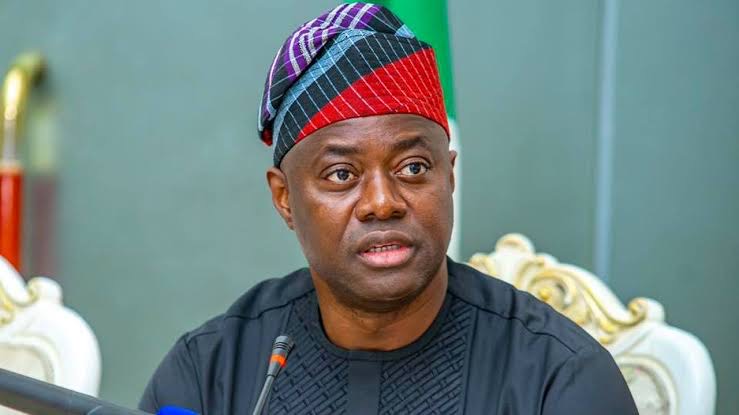Governor Seyi Makinde of Oyo State has attributed the frequent defections of Nigerian politicians to the lack of a strong party ideological foundation. He made this statement in Ibadan on Thursday during the public presentation of a book titled “Omituntun’s Political Ideology of Seyi Makinde.” The governor was represented by his Special Adviser on Media, Dr. Sulaimon Olanrewaju, who emphasized that this issue has become a significant problem that cannot be overlooked.
According to Governor Makinde, his political approach is distinct and has evolved over the years to become recognizable and impactful. He described his style as “politics for impact” and “governance for the good of the people,” rather than seeking power for its own sake. The chairman of the occasion, Dr. Yemi Farounbi, praised Makinde’s leadership style, describing him as a committed public servant.
The book reviewer, Mr. Wale Adewumi, noted that the publication reflects the heart of a transformational leader and serves as a guide for future generations. He stated that the book captures the spirit of a leader who governs with integrity, unity, and service, and challenges others to lead with the same sense of purpose. The book author, Babatunde Osumah, explained that the publication aims to document and analyze the Omituntun ideology, which is built on renewal, progress, and people-oriented reforms.
Osumah described Omituntun as a living ideology that continues to shape Oyo State’s journey toward inclusive growth and social justice. The ideology is not just a slogan, but a framework that has showcased great leadership qualities to be emulated by successive administrations. The public presentation of the book highlights the importance of strong ideological foundations in Nigerian politics and the potential for impactful governance. As the country continues to navigate its political landscape, the discussion around party ideologies and their role in shaping leadership styles is likely to remain a significant topic of conversation.
